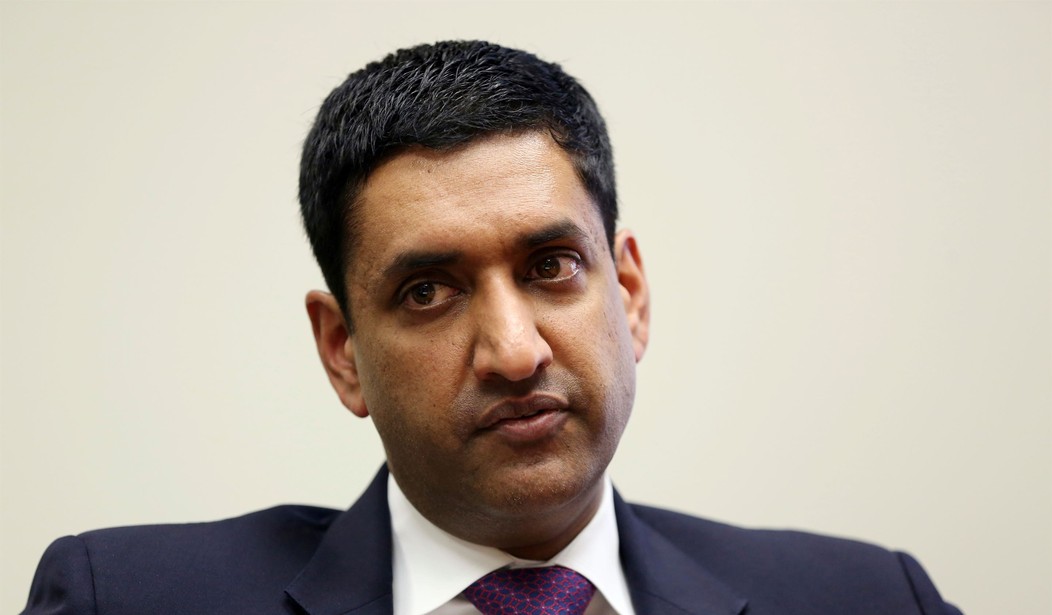Three cheers for a California Democrat? You bet, and Ro Khanna had already earned one in Elon Musk’s Twitter dump last Friday.
The internal debate at Twitter over the suppression of the Hunter Biden laptop story never even considered the First Amendment implications — except when Khanna brought it up. Matt Taibbi reported that Khanna e-mailed now-former VP Vijaya Gadde that Twitter’s suppression of the story had generated “a huge backlash” on Capitol Hill, and that free-speech concerns were rising fast:
30. In one humorous exchange on day 1, Democratic congressman Ro Khanna reaches out to Gadde to gently suggest she hop on the phone to talk about the “backlash re speech.” Khanna was the only Democratic official I could find in the files who expressed concern. pic.twitter.com/TSSYOs5vfy
— Matt Taibbi (@mtaibbi) December 3, 2022
32.Khanna tries to reroute the conversation to the First Amendment, mention of which is generally hard to find in the files: pic.twitter.com/Tq6l7VMuQL
— Matt Taibbi (@mtaibbi) December 3, 2022
In fact, this warning from Khanna turned out to be prophecy:
But this seems a violation of the 1st Amendment principles. If there is a hack of classified information or other information that could expose a serious war crime and the NYT was to publish, I think the NYT should have that right. A journalist should not be held accountable for the illegal actions of the source unless they actively aided the hack. …
But in the heat of a Presidential campaign, restricting dissemination of newspaper articles (even if NY Post is far right) seems like it will invite more backlash than it will good.
In fact, it wasn’t a hack, and neither was it “Russian disinformation.” The NY Post article was not just solid, it had independent corroboration from other sources. And as Khanna predicted, the backlash was so severe that it arguably led to the sale of Twitter to Elon Musk and the sacking of all the execs in this decision tree. Among other impacts, of course.
Today, Khanna sums up the lessons learned in this debacle, not just for Twitter but for his own Democrat Party. Free speech should be the central value in these debates rather than political expediency, Khanna argues, because neither party nor any politician has a monopoly on the truth (via Memeorandum):
As Silicon Valley’s representative in Congress, I reached out to Twitter at the time to share these concerns. In an email meant to be private, but recently made public by Matt Taibbi’s “Twitter Files” thread, I wrote to Twitter’s general counsel that the company’s actions “seemed to be a violation of First Amendment principles.” Although Twitter is a private actor not legally bound by the First Amendment, Twitter has come to function as a modern public square. As such, Twitter has a responsibility to the public to allow the free exchange of ideas and open debate. …
I agreed with Twitter’s decision to take down explicit photos of Hunter Biden and to prevent algorithmic amplification of the Post story. But there’s a difference between sharing and artificially amplifying. Social-media companies shouldn’t have bots that amplify speech in the first place—they add chaos to the dialogue. They certainly shouldn’t be abusing people’s data by using it to target them with sensational content. We need to uphold the sovereign right to our data. Even so, the story itself shouldn’t have been censored, and those who shared it shouldn’t have been suspended. That went too far.
To the extent Twitter makes value decisions on the forum—types of conspiracy theories or hate-inciting content that gets removed or isn’t promoted—the company should have clear and public criteria. Elon Musk has said Twitter will be “more aggressive than ever, using technology to reduce the reach of hateful Tweets and prevent their amplification.” Transparency into how decisions are made, including some recourse to appeal, is crucial—with some independent committee or board that will thoughtfully consider a complaint of censorship.
Khanna then nails it on the “foundational value” of the First Amendment, and why it matters even in private platforms of public debate:
A robust defense of First Amendment principles online is more important than ever. Citizens in our polarized country need to have conversations with each other based on mutual respect. Suppressing speech we don’t like leaves us blind to alternative perspectives that help us see the whole, complex truth.
That’s true in and of itself. Add to that the tools Twitter already supplies (and did at the time) for users to shape their own experiences on the platform, and the intervention is even more inexplicable. People can already cocoon themselves on Twitter if they choose; they don’t need Twitter execs suppressing news stories and throttling accounts based on viewpoints to make themselves “safe” from dissenting opinions. As Khanna rightly points out, viewpoint suppression can easily lead to “disinformation” of its own — as happened in this case.
Twitter and other social media platforms should operate on those foundational principles of the First Amendment. Elon Musk has already pledged to do so, in fact, while still moderating against clearly abusive and threatening speech without viewpoint considerations as part of those decisions. Perhaps Khanna can help in that effort by reining in the Departments of Justice and Homeland Security and ending their attempts to impose “disinformation” censorship-by-proxy on social media platforms going forward. That would be worth a whole raft of cheers in the next Congress.







Join the conversation as a VIP Member